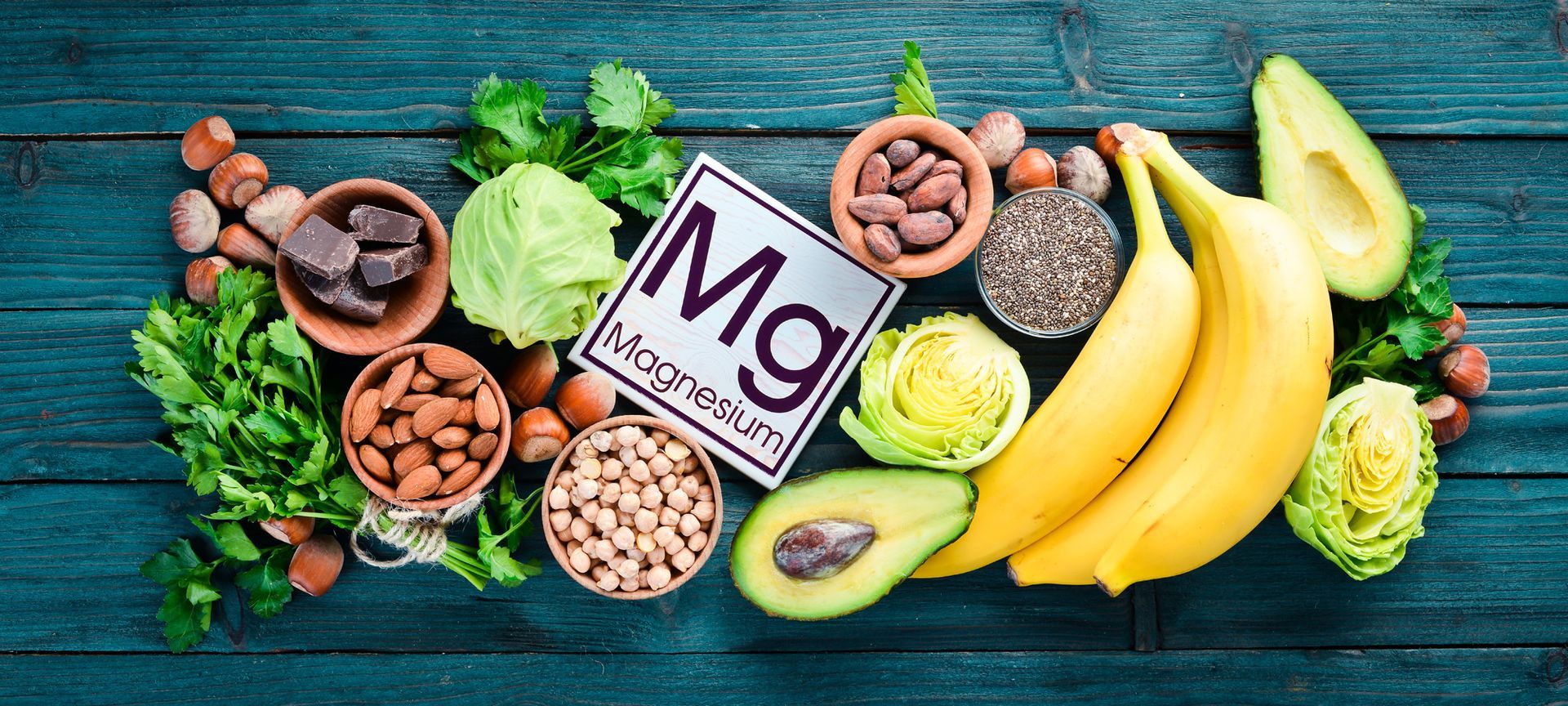Benefits of Magnesium and How to Get Enough
Magnesium is essential for over 300 bodily functions, and insufficient intake can lead to fatigue, muscle cramps, chronic inflammation, and increased risk of serious health issues like cardiovascular disease and osteoporosis.
-Dr. Alicia Armitstead
Magnesium supports over 300 different enzymes in the body and is needed for every muscle and intestinal contraction, immune function, DNA repair, and bone growth. When you don't consume enough magnesium, your body notices. You can start feeling fatigue, weakness, muscle cramps, trouble sleeping, irritability, depression, light sensitivity, migraines, and rapid heartbeat. Also, due to low magnesium, your blood pressure and cholesterol may go up, and the body will create chronic inflammation because it's not supported like it needs to be.
50% or more Americans do not consume enough magnesium, placing them at higher risk for cardiovascular disease, diabetes, high blood pressure, and osteoporosis. 60% of the magnesium in our body is stored in our bones. Magnesium is important for bone formation and helps activate vitamin D, which is crucial for building bone. If you don't get enough magnesium, the body will use what is stored in the bones, which can lead to osteoporosis.
Besides helping make strong bones, magnesium helps the neurotransmitters in the brain, which can help with depression. Magnesium works in the brain by blocking the activity of stimulating neurotransmitters and binding to calming receptors, resulting in a more peaceful state. It also helps the adrenal glands release cortisol, which helps regulate the nervous system.
Also, in the brain, magnesium helps release GABA, a relaxing chemical, and decreases levels of glutamate, a stimulating chemical. In this way, magnesium can help with sleep.
Magnesium supports insulin in the bloodstream. Insulin metabolizes carbohydrates, which is important to prevent blood sugar spikes and diabetes.
So, eating enough magnesium and supplementing it is important. Magnesium supplements may be needed because the amount of magnesium our food holds has decreased over the decades because our soil is depleted. Also, being able to use the magnesium you are getting from food and the amount you really need depends on genetics, metabolism, good digestion, and a gut that is not inflamed. That is why I love to muscle test. When I do a muscle test, the body gives me feedback on exactly how much magnesium it needs and what type. In this way, I can be as specific as possible.
Supplementing is important from a food-based company because you don't want synthetic magnesium. If it's synthetic, the body doesn't know how to use it. If you take magnesium from a whole-food supplement, your body knows what to do with it. There are lots of different magnesium supplements; finding the right one for you is why we muscle test.
Different Types of Magnesium
- Magnesium Lactate supports cellular function, so your cells can produce more energy. It helps with bone formation, so this one is good for people with or preventing osteoporosis. It also helps with muscle contraction, so I like this for muscle cramps, too.
- Magnesium Glycinate is a form of magnesium that contains glycine, an essential amino acid that has important neurotransmitter function in the brain. So, this magnesium is good for those with trouble sleeping and depression. It can also help with constipation by drawing water into the intestines, softening stools, and making them easier to pass.
- Ozonated Magnesium is good for constipation. It comes with oxygen that helps gently dissolve compacted stool. The oxygen also helps good bacteria flourish. With more good bacteria in the gut, this supplement can help reduce the discomfort from gas and bloating.
- Magnesium Carbonate is good for constipation and calms down the nervous system. This is helpful if constipation is caused by tense intestinal muscles caused by anxiety or stress.
- Magnesium Citrate is commonly used but rarely works because it's hard for the body to absorb.
Foods highest in magnesium are leafy greens like spinach and kale. Magnesium sits at the center of the chlorophyll molecule, so when in doubt, eat green! Avocado, pumpkin seeds, sunflower seeds, bananas, and black beans are also high in magnesium. You can use a food diary app to help you calculate how much magnesium you get from your food. If it doesn't look like enough, you can use an electrolyte powder to fill in the gap.
My favorite electrolyte powder is LMNT. When you go from magnesium deficiency to magnesium sufficient, you will have fewer cramps, a better mood, more energy, and less inflammation.












